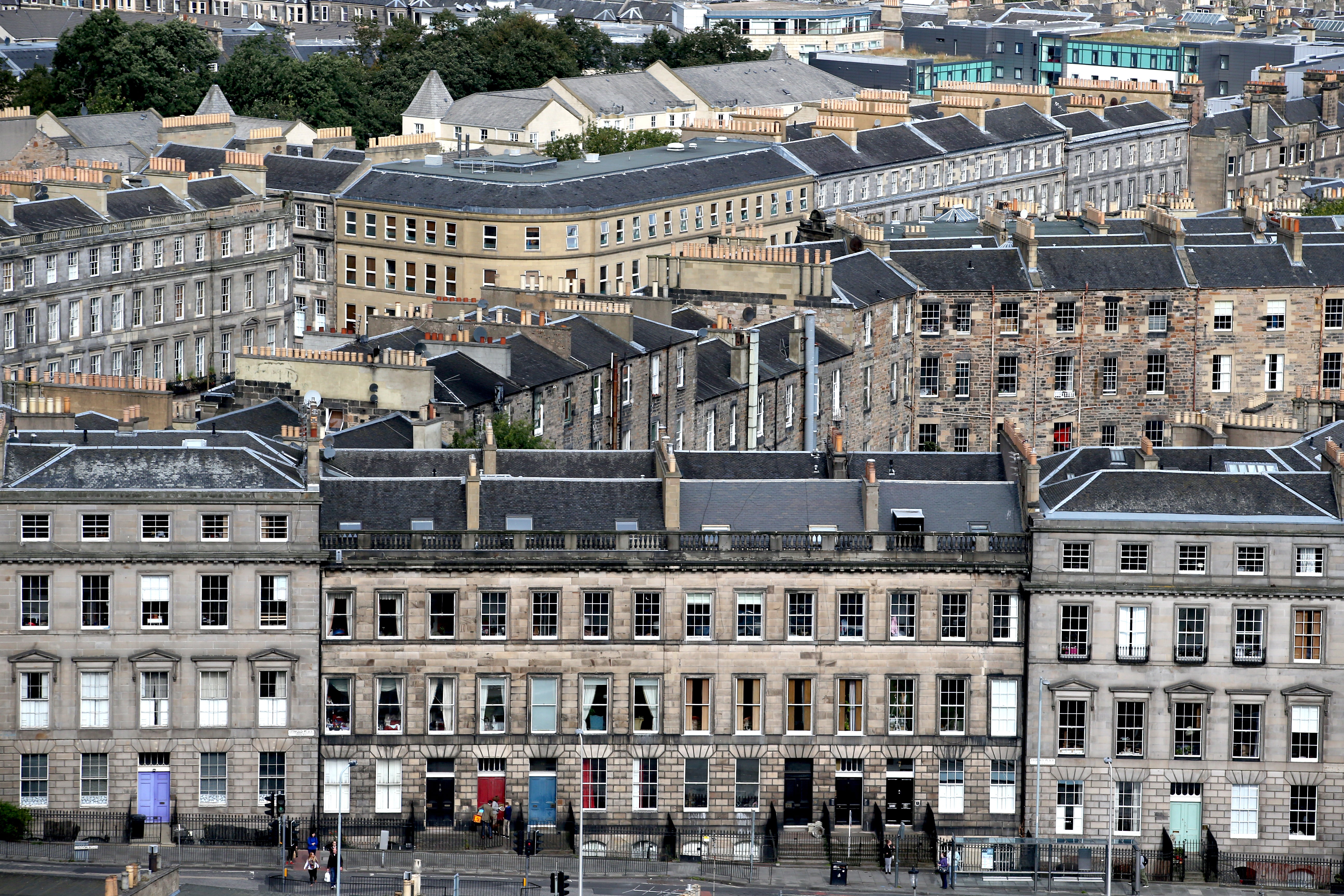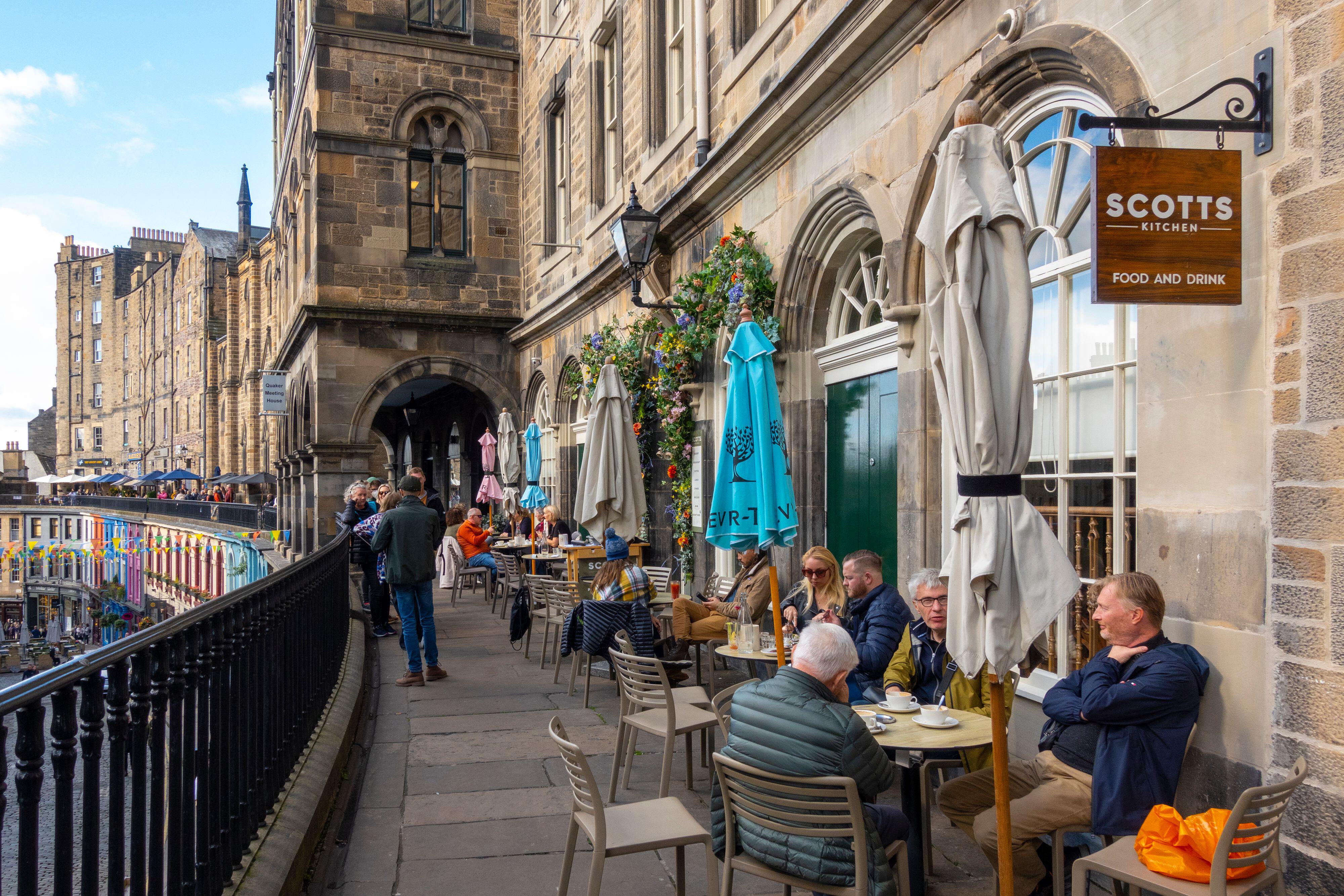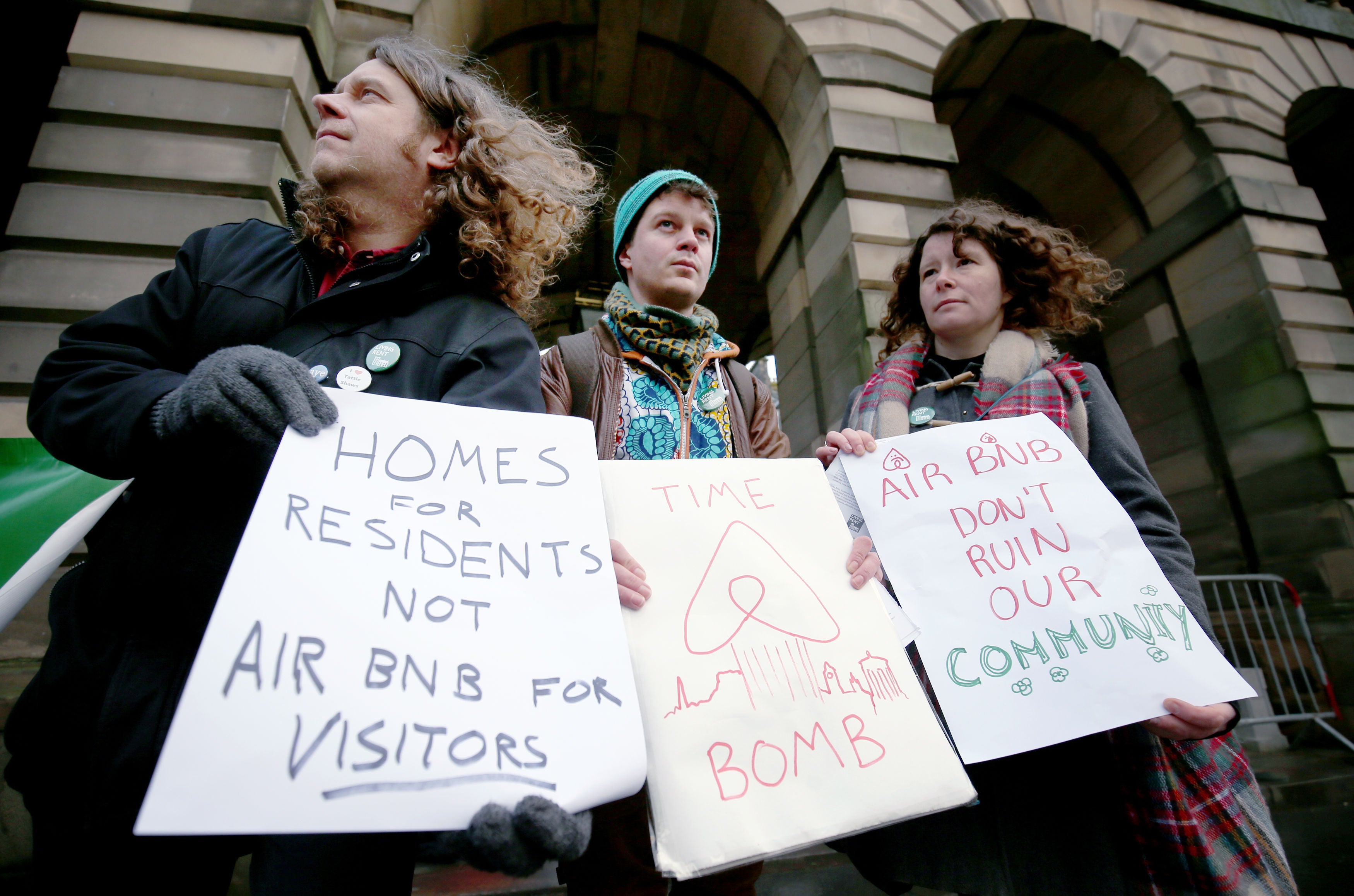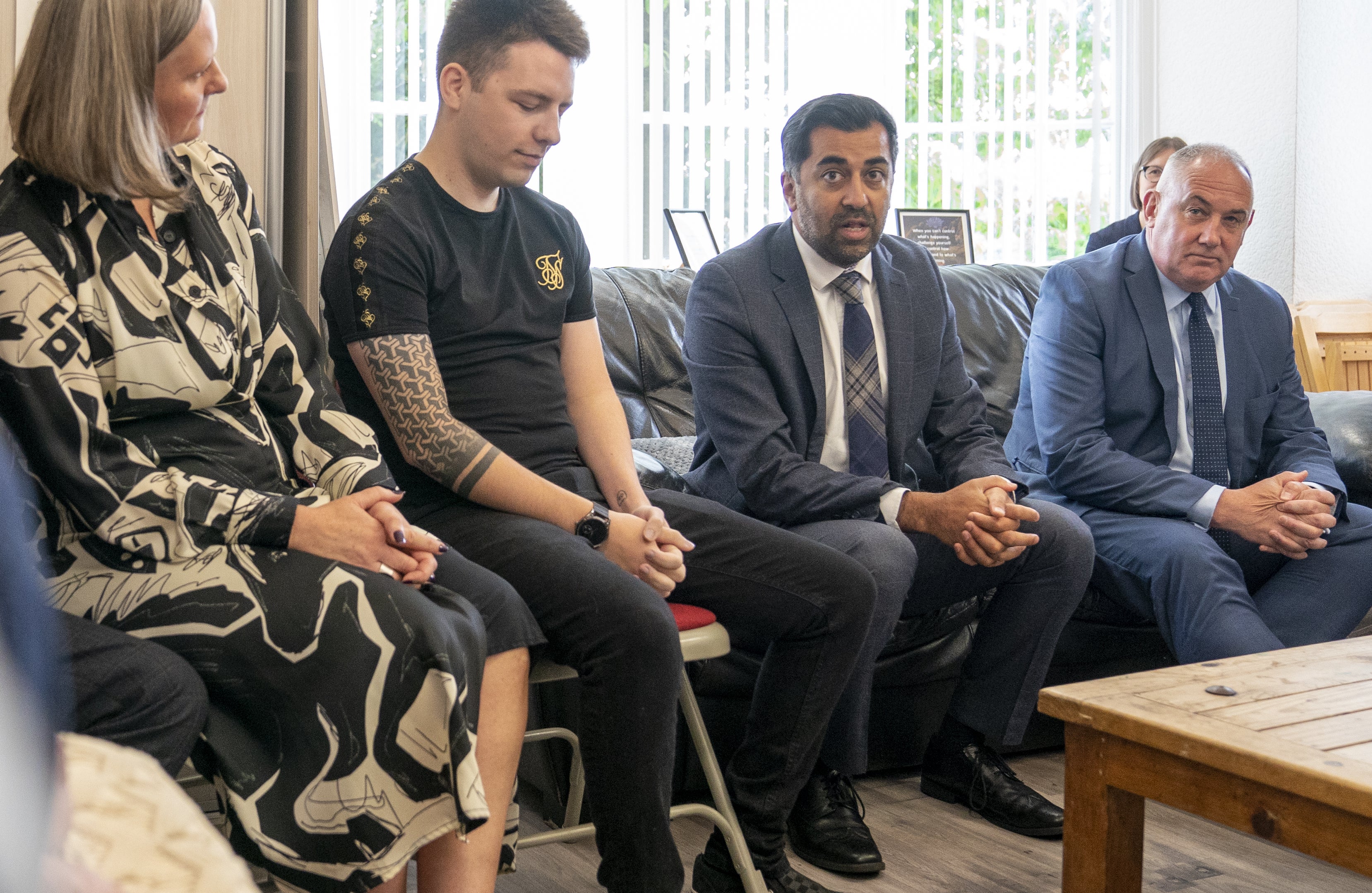How Scotland’s war on Airbnb is threatening tourism firms
Pressure on housing led to a crackdown on short-term lets – but now many B&B and self-catering owners are giving up in the face of red tape, says Gethin Chamberlain


What is the worst thing about tourists during the summer holidays in Edinburgh?” The clickbait question posed by the Edinburgh Evening News drew predictable grumbles. They block the pavements. They stop to take pictures. They crowd the cafes. They ask where the castle is, or what time the one o’clock gun goes off.
Scotland’s capital has always had a difficult relationship with the tourists that flock to it, with well-heeled nimbys who tut and shake their heads at crowds – often while enjoying the restaurants, bars and cultural life that visitors sustain.
But there has been a new grumble of late: that tourists are occupying city-centre accommodation that could otherwise provide homes for locals. It’s an argument heard in many places around the world as global tourism becomes more accessible and pressure grows on housing.
Now something is changing in Scotland that will delight the head-shakers and leave the millions hoping to visit next year wondering why it suddenly got harder and more expensive to find somewhere to stay.
Activists demanding a clampdown on Airbnb-style self-catering apartments found they had the ear of the City of Edinburgh Council. Then the Scottish government got on board.
The result is that, from 1 October, every self-catering property, B&B and guest house in Scotland needs a licence, or at least to have applied for one. Operating without a licence will be a criminal office, punishable with a fine of up to £2,500.
New short-term let legislation has led to warnings of thousands of job losses and a massive hit to the Scottish economy. Businesses operating away from the tourism hotspots complain they are collateral damage in a dispute that has little to do with them.
Many small tourism operators think the law has been framed to put them out of business, placing impossible hurdles in their way, including retrospective planning permission that councils have no intention of granting.

They warn that visitors are effectively being told they must stay in expensive hotels – or, if they are still looking for self-catering, to head south over the border into England – though to complicate matters further, it has now emerged that an American company is selling tickets for berths on a cruise liner due to dock at the port of Leith during next year’s festival. Tickets start at £179 per person per night, and offer full board – not great news for the city’s restaurants – with guests ferried into the city by coach.
Tourism businesses warn, too, that the Scottish government is in danger of repeating the mistakes it made with recent debacles: a deposit return scheme (DRS) for bottles that collapsed with the loss of 60 jobs and owing £86m, and the self-identification gender reform bill that was blocked by Westminster.
What these projects had in common was that they were introduced after consultations that had been heavily influenced by small but vocal groups of activists, and fell apart in the face of a ferocious backlash when voters discovered what the changes meant in reality.
The potentially disastrous effects of the short-term let laws have yet to break through into public consciousness, partly because self-catering tends to be conflated with second home ownership, which garners little sympathy, and partly because owners are lumped together with landlords. Even though millions stay in Airbnbs around the world every year, the platform has attracted much negative comment.
But already, operators are voting with their feet and leaving the industry rather than pay thousands of pounds to try to meet the requirements of the new law.
In Edinburgh – which the council claims is home to about a third of Scotland’s self-catering properties – just two licences have been issued for stand-alone self-catering property. In Highland – an area estimated to have more than 10,000 self-catering properties – only around 1,000 licences have so far been issued out of 2,000 applications.
According to the Scottish government, so far it is aware of 2,652 licences granted across the country (out of 5,287 applications). To put that in context, its own research recorded that in 2019 there were 31,884 properties listed on Airbnb alone in Scotland. Tens of thousands of businesses are either waiting until the last minute, or have given up.

We’re not alone in trying to put something back
Booking a holiday rental property has become a popular and affordable way of taking a break. I know just how popular it has become because our family runs a small self-catering business in the Scottish Borders.
We borrowed and mortgaged to set it up. Now we find ourselves, like thousands of others, trying to work out if it is worth ploughing on.
Around half of our guests come from Scotland. They stay because, like many businesses in this sector, we offer good accommodation ideal for extended families and groups of friends looking for somewhere large enough to stay all under one roof.
Feedback suggests that guests enjoy places that support their local communities. We encourage our guests to use the local shops, hire bikes, go fishing, try paddle-boarding, book a personal chef, sample great local cafes and restaurants; these visitors play a key role in supporting the local economy. We went a bit further and set up a social enterprise that created a community woodland for our town and now offers a nature education programme for local schools. We’re not alone in trying to put something back.
Airbnb is often used as a derogatory term, but millions stay in self-catering every year. Some places must be doing something right. And in a cost of living crisis, self-catering offers incredibly good value for money. In the low season, eight people staying with us for a week works out at £16 each per night. Best of luck finding a hotel for that price.
So why did the Scottish government fall out of love with short-term lets? After all, tourism is a key industry in Scotland. According to Visit Scotland, the Scottish government quango, 3.46 million international tourists came to Scotland in 2019, staying a total of 27.3 million nights and spending £2.53bn.
Part of that success was a rise in self-catering properties disrupting the traditional market, to the annoyance of big hotel companies. According to Scottish government research, by 2019 there were 31,884 Airbnb listings for Scotland, accounting for 1.2 per cent of dwellings.
They brought positive benefits, researchers reported, including increased spending and jobs. But they also had a negative impact through disturbance to residents, particularly in the traditional tenements of Edinburgh.
With a growing shortage of affordable housing, and finances tight, the city council embraced campaigners who wanted action to be taken to curtail short-term lets.
Over-tourism has been a hot topic for years in Edinburgh and Highland, boosted by cheap flights and the ability to book apartments with ease online. Influencers encouraging visitors to “live like a local” have piled on more pressure. It is not hard to see the appeal of restrictions designed to prevent the hollowing-out of communities as locals sell up and cash in.

City of Edinburgh Council leader Cammy Day says housing shortages and disturbance to long-term residents are behind a need for better management of short-term lets. “We remain committed to ensuring the whole city benefits from our thriving visitor economy, but it has to be managed and it has to be sustainable – and I continue to believe that fair and effective controls are an important step in the right direction,” he says.
But the council’s position starts to look a little less like altruism and more like self-interest when its own business ambitions are considered. The council, it turns out, is behind the development of the largest hotel in the city, and has also leased its historic former offices on the Royal Mile for luxury holiday apartments. It also owns the Travelodge hotel in Ratho, close to the airport. (That’s not to say the council is particularly good at the tourism game; it reportedly lost a quarter of a million pounds on the Travelodge deal in 2020, and managed to secure a deal worth just £24,001 a year for the apartment lease at a time when holiday flats are currently fetching more than £3,000 a week.)
The council won’t say how much it paid to lease the 349-room super-hotel – still under construction in the Haymarket area and due to operate under a franchise from Hyatt – but it is known that the deal came in 2018 to plug a funding gap, just as the council began lobbying to shut down short-term lets. Unsurprisingly, the apparent conflict of interests has brought allegations of hypocrisy – something the council denies, insisting that the developments provide new or improved facilities rather than replacing existing homes.
The Scottish government’s relationship with short-term letting is no less complicated. Under Alex Salmond, it had taken care to bring businesses alongside, appreciating the importance of a big-tent approach and that an independent Scotland would need to generate income.
Nicola Sturgeon showed little interest in businesses – their entrepreneurial approach regarded with suspicion by her Green Party allies – and even less in Scotland’s self-catering sector. She tended to take her holidays at a villa in Portugal, co-owned by her husband Peter Murrell and his sister. Close friend and political ally Shona Robison, who was the housing minister responsible for steering the short-term let restrictions through Holyrood, prefers to take her holidays in a camper van.

When Covid-19 struck, businesses ordered to close their doors by law were promised £10,000 of support to make up for lost trade. But not self-catering businesses. horrified owners checked and rechecked the online forms, looking for their industry. It wasn’t there. It quickly became clear that this was not an oversight; self-catering accommodation had been deliberately excluded, apparently to prevent second home owners from collecting a bounty. The government relented after several days of holding out, but many operators felt their card had been marked.
The sound of owners beating their heads on their breakfast tables echoed around the country
When Sturgeon abruptly stepped down earlier this year, shortly before she and her husband were arrested – with police impounding a camper van from her mother-in-law’s driveway – there was the chance of a reset.
Robison had announced a six-month stay of execution, scrapping the original March deadline and moving it to October. The cost of living was cited as the reason, but serious concerns had been expressed by Edinburgh Festival Fringe organisers over the potential impact on accommodation for visitors and performers, with a prediction that the Fringe might shrink by one-third by 2024.
But as time for a reprieve ticked away, the SNP became preoccupied with selecting a new leader to become Scotland’s first minister; Humza Yousaf prevailed, but immediately became bogged down in the fallout from the self-ID gender legislation and then the deposit return scheme imbroglio – both of which had been strongly supported by the Green Party that props up the minority SNP government at Holyrood. The Greens were also instrumental in pushing for short-term let restrictions.
Against this background, the last thing the Scottish government needed was another policy with unpopular unintended consequences. Enter new housing minister Paul McLennan, who was appointed by Yousaf in March, acknowledging the importance of tourism as a “vital sector” and promising to strike a balance between “businesses providing attractive, varied tourist accommodation and the demand for affordable housing”.
For a brief moment, amid talk of a new relationship between the government and business and the establishment of a New Deal for Business Group, it looked like McLennan might be preparing the ground for a pragmatic compromise. Instead, he doubled down; the new rules will go ahead this autumn. Meanwhile, the Scottish government announced plans for a new tourist tax, which would have to be administered by hotels, self-catering and other accommodation providers, but would not apply to the cruise ships that disgorge thousands of day-trippers into Edinburgh’s streets. Or to camper vans.

McLennan, whose marginal East Lothian seat now seems under intense threat from resurgent Labour, was unavailable to speak to The Independent about the issue, citing a “busy diary”. He did appear on the BBC’s Good Morning Scotland radio programme last week to insist that businesses were finding it very easy to get licences, as the sound of owners beating their heads on their breakfast tables echoed around the country.
In a statement, the Scottish government insisted that many businesses had already applied for and received licences. It said half of the 5,287 applications from 18 council areas (there are 32 in Scotland) had already received licences. “Local authorities report that feedback to them indicates applicants are finding the process more straightforward than expected,” it said.
Tourism accounts for around 10 per cent of the local workforce in East Lothian, and is worth more than £257m to the local economy; about 30 per cent of visitors stay in self-catering accommodation, while a third stay in caravans or camping and just 19 per cent in hotels. It’s a courageous minister who persists with a policy that threatens to kill off grassroots tourism when so many businesses in his own constituency depend on it.
‘It’s a pleasure to see them there’
But back to the Edinburgh Evening News and its survey. What the paper might not have been expecting was the backlash it received, with many respondents challenging the premise of the question. Why, they wanted to know, was a local newspaper being so negative about tourists when much of the city’s economy depends on them? “Much of what you love about Edinburgh only survives due to tourism,” one wrote.
Another added: “They help make Edinburgh the thriving, prosperous city it is today... full of events, concerts, festivals, bars and restaurants.”
And responding to the invitation to describe the worst thing about Edinburgh’s tourists, SNP digital communications staffer Michael Hannon responded: “Absolutely nothing – it’s a pleasure to see them there.”
It seems not everyone wants to see the back of tourists.






Join our commenting forum
Join thought-provoking conversations, follow other Independent readers and see their replies
Comments